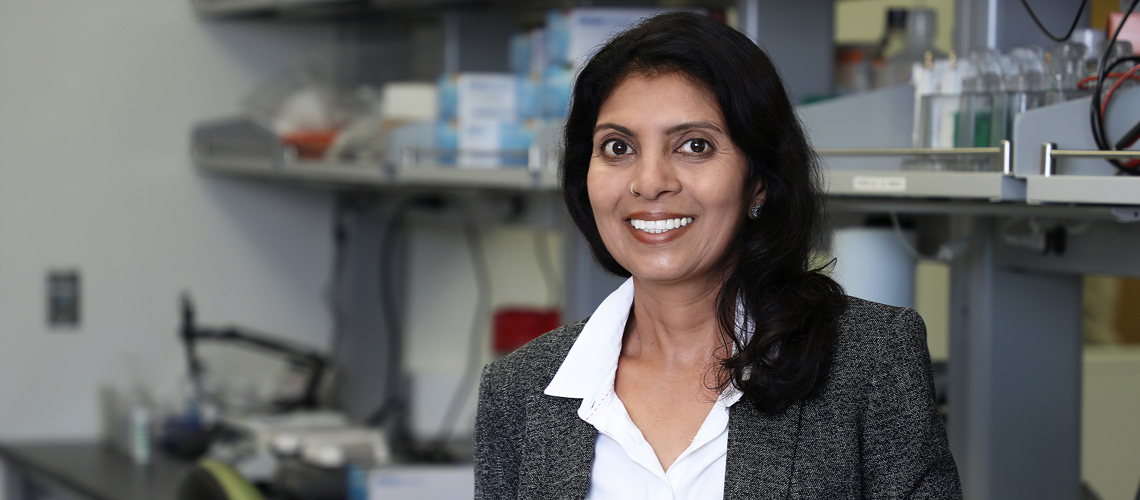Nagajyothi Lab
Jyothi Nagajyothi, Ph.D., is a director member of the Center for Discovery and Innovation.
The Nagajyothi lab investigates how fat-storing cells, known as adipocytes, regulate the pathogenesis, progression and severity of infectious diseases, such as Chagas cardiomyopathy, pulmonary tuberculosis, COVID and post-COVID cardiomyopathy, as well as non-infectious diseases, such as type 2 diabetes, lean diabetes, and cancers (breast cancer and metastasis and multiple myeloma). In addition, her lab studies whether and how diet, metabolic drugs, and the loss of body fat alter the immunoregulatory effects of adipocytes on various cell types including immune, epithelial, endothelial, fibroblast and tumor cells.
How do adipocytes regulate other cells?
 Adipocytes possess endocrine functions and play a central role in regulating whole-body energy, nutrient and immune homeostasis via secreting and releasing factors such as active lipid metabolites, adipokines, adipocytokines, and adipochemokines. These adipocyte-secreted factors vary depending on the body’s physiological and pathological conditions. Adipose tissue is the primary source of estrogens, whose circulating levels are elevated in postmenopausal obese women and are a risk factor for breast cancer. However, obesity reduces the risk of breast cancer in premenopausal women. The Nagajyothi lab studies: (i) how metabolic and immune stresses shape the functions of adipocytes, and (ii) how under pathological conditions, such as deregulated lipolysis, the release of inflammatory adipokines regulates the outcomes of chronic infectious diseases, tumorigenesis, and metastasis.
Adipocytes possess endocrine functions and play a central role in regulating whole-body energy, nutrient and immune homeostasis via secreting and releasing factors such as active lipid metabolites, adipokines, adipocytokines, and adipochemokines. These adipocyte-secreted factors vary depending on the body’s physiological and pathological conditions. Adipose tissue is the primary source of estrogens, whose circulating levels are elevated in postmenopausal obese women and are a risk factor for breast cancer. However, obesity reduces the risk of breast cancer in premenopausal women. The Nagajyothi lab studies: (i) how metabolic and immune stresses shape the functions of adipocytes, and (ii) how under pathological conditions, such as deregulated lipolysis, the release of inflammatory adipokines regulates the outcomes of chronic infectious diseases, tumorigenesis, and metastasis.
What are adipomes and what do they do?
Adipocytes produce extracellular vesicles we have termed “adipomes”, which are released into (a) various organs and tissues such as adipose, epicardial, pericardial, and breast tissues, and (b) the circulatory and lymphatic system. Recently, the Nagajyothi lab standardized the methods to isolate and purify the adipomes from different organs and from plasma under various metabolic and pathological conditions. Currently, her lab studies the adipomes isolated under different physiological and pathological conditions affect the signaling pathways involved in mitochondrial oxidative and endoplasmic reticulum stress, energy signaling, apoptosis and survival of immune cells, immune cell activation, metabolic functions of cardiomyocytes, and survival and migration of tumor cells.

